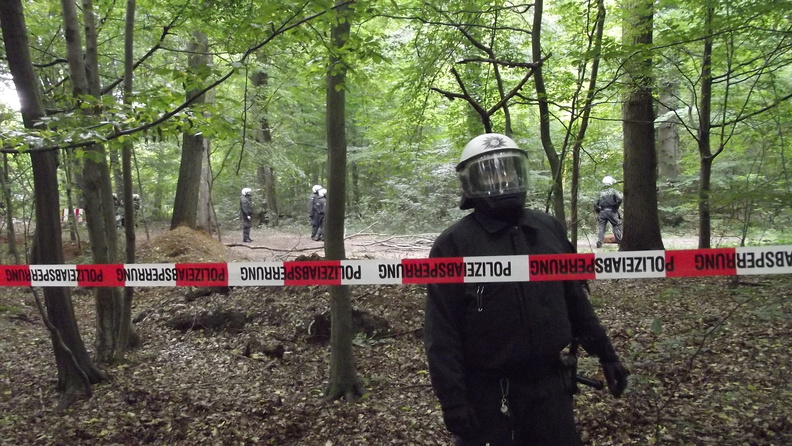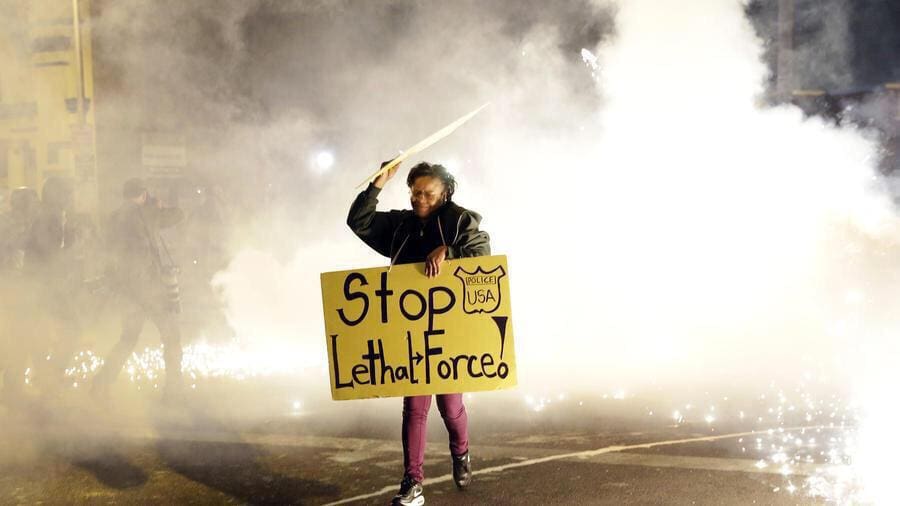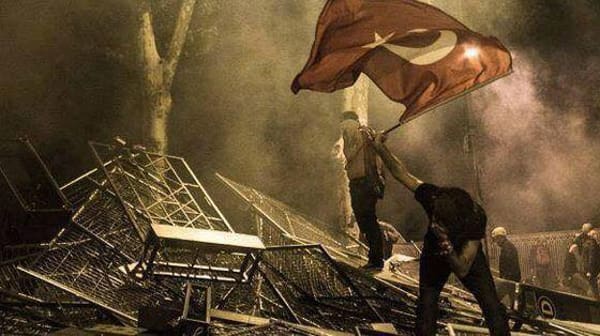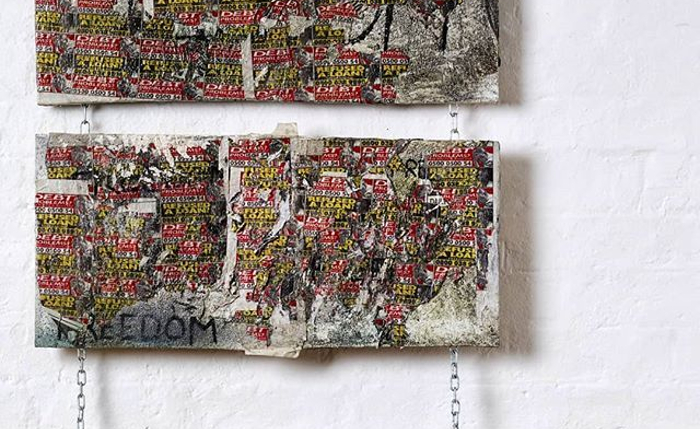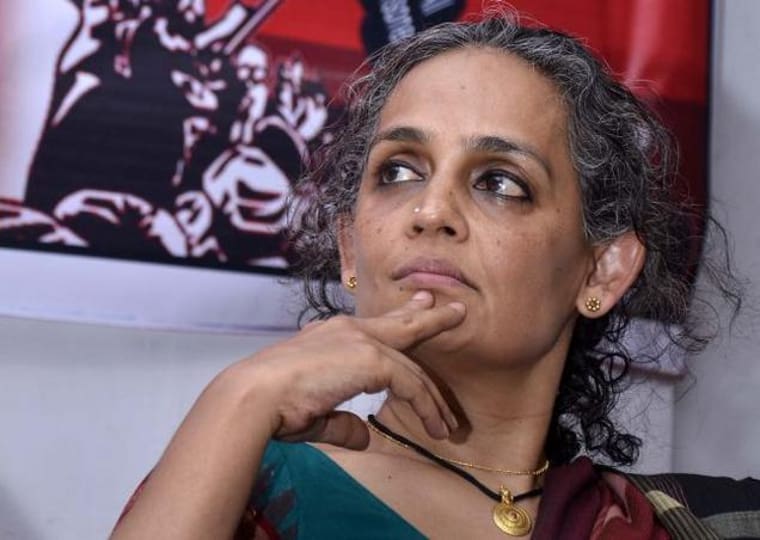Transcribed from the 16 April 2016 episode of This is Hell! Radio (Chicago) and printed with permission. Edited for space and readability. Listen to the whole interview:
“Is it humanity in general that is creating climate change and extinction and pushing us through these various other thresholds? Or is it the 1%? I want to put the right people on the hook for this.”
Chuck Mertz: Life is going extinct on planet Earth at the fastest rate in human history—or in all of history. Species are dying off, and our next guest believes he has discovered the radical reason why. Fortunately, our guest also has a radical solution. Here to tell us about the big die-off and what can be done about it, Ashley Dawson is the author Extinction: A Radical History.
Welcome to This is Hell!, Ashley.
Ashley Dawson: Hi there, Chuck, thanks for having me on.
CM: It’s great to have you on our show.
Ashley is a professor of English at the City University of New York. Prior to Extinction: A Radical History, Ashley was the author of the Routledge Concise History of Twentieth Century British Literature and 2007’s Mongrel Nation: Diasporic Culture and the Making of Post-Colonial Britain.
You write, “As they spread across the planet, homo sapiens decimated populations of megafauna everywhere they went. Humanity essentially ate its way down the food chain, wiping out biodiversity. We are witnessing the real destruction of the world’s remaining megafauna, the endgame of an epoch of epic defaunation, or animal slaughter.”
In your opinion, are we more likely to eat ourselves out of house and home or to burn it down through climate change?
AD: We’ll see; it’s going to be quite a race to the finish in that regard. The reason I wanted to talk about extinction is I think that climate change has been getting a lot more attention, and there’s a lot more political movement around it, particularly in relatively wealthy nations like the US. But there are a whole series of critical thresholds that industrial capitalism is pushing the planet across.
Extinction is one of these vital thresholds. The numbers are really, really shocking. We’re losing about a hundred species a day, and over the last fifty years we’ve seen depletion of about fifty percent of the flora and fauna on the planet.
What I try to argue in the book, though, is that there is a much longer history. We human beings have been hunting charismatic megafauna for a very long time, and there are records showing that when human beings spread out of Africa, we destroyed a lot of the big animals. If you look back to the arrival of human beings in North America about thirteen thousand years ago, we destroyed a lot of the large animals, like giant sloths, for instance.
So I want to acknowledge this much longer history of pushing animals to extinction. But having done that, what I really focus on in the book is the way in which these tendencies have been amped up to a crisis point by industrial capitalism over the last two hundred years, most particularly since 1945. That’s when the real mass extinction wave takes off.
CM: What do we miss in our understanding of the many environmental crises that we face today when we don’t consider mass extinction?
AD: It’s a problem to think about Earth with one system in isolation. We’re pumping fossil fuels into the atmosphere as part of this system of capital accumulation. But that system is also producing a whole series of other effects, and one of the reasons that animals are going extinct in such large numbers is because certain spots where biodiversity is concentrated are being decimated. Those spots tend to be in post-colonial nations. We could mention Kenya; one might also think about places like Indonesia and Brazil, which have tropical rainforests with unparalleled biodiversity. Those sites are targeted by forms of extraction today.
We need to think about climate change in connection to these broader assaults on the planet, and we need to think about these things as a product of capitalism. That’s my essential argument. If we think about extinction in too broad of terms, we don’t understand what’s really driving it.
That’s why I wanted to call my book a “radical history.” I think about the term radical in the sense of going to the roots of it, really understanding the driving force behind extinction, and I argue that it’s capitalism. All too often things like extinction—and climate change, for that matter—are thought of in very broad terms as something that humanity in general is responsible for.
I don’t know if you’ve heard the term anthropocene: it’s this notion that we’ve entered a new epoch in which humanity’s imprint on the planet is going to be visible in the geological record. But there’s a real problem with that kind of term, because it raises the question: is it humanity in general that is creating climate change and extinction and pushing us through these various other thresholds? Or is it the 1%—both in the global North and also to a certain extent in global South countries?
We need to understand what forces are driving these different crisis points.
CM: You mention the impact of empire-building on the planet and the environment throughout our history. You write, “While it may be true that humanity’s capacity to transform the planet on a significant scale through mass extinction dates back many millennia rather than two centuries—and that the anthropocene therefore needs to be back-dated substantially—it is only with the invention of hierarchical societies such as the Sumerian empire that practices of defaunation and habitat destruction became so sweeping as to degrade large ecosystems to the point of collapse.
“The history of Egypt suggests that under the right material and cultural circumstances, human beings can achieve relatively sustainable relationships with the natural world. It is the combination of militarism, debauched and feckless elites, and imperial expansionism through which the Sumerians laid waste to much of the Fertile Crescent in pre-modern times that renders ecocide so toxic as to destroy the very civilizations that carried it out. The collapse of ecocidal imperial structures should serve as a potent warning to the globe-straddling world powers of today.”
So if our history is littered with empires that have committed what you call ecocide, what explains to you why we never learn the lesson of our impact on nature, and that empires still continue to try to grow even though they commit ecocide?
AD: I think there are two factors. As you just mentioned, I talk about the ancient world and the way we now think of places like Iraq and North Africa—which was a province of the Roman Empire—as desert regions. But they weren’t always that way. They were driven to that condition by empires that tried to extract as much as possible from those places.
There’s an ideological mindset to empire, a settler-colonial attitude that we can just expand as much as possible. That was the way that the Roman Empire worked. When they needed more gold in their treasury they would just go off and try to conquer a new section of the world. Eventually they ran up against military constraints—and also environmental constraints. I argue that those environmental constraints (the fact that the Romans had denuded Sicily and much of North Africa, for example) played a key role in the collapse of empires in the ancient world.
But in addition to that ideological mindset which drives empires past and present, I also argue that in the capitalist era, imperialism is driven by the need for capital accumulation that is ceaseless and, of course, has to be continuously building and augmented—to a certain extent, capitalist powers are driven by this need to expand accumulation and growth. So there’s a material reason there as well as an ideological mindset that drives us to this end.
CM: You write about the mass slaughter of animals during the ‘bread and circuses’ of the Roman Empire: “When emperor Titus dedicated the Coliseum, for example, nine thousand animals were killed in the three-month series of gladitorial games. Indeed, the Roman Empire was probably responsible for the greatest annihilation of large animals since the Pleistocene megafauna mass extinction.”
And you point out, “To justify the carnage of wildlife, Roman attitudes towards the natural world shifted markedly. That is, during the early days of the Republic Romans regarded the Mediterranean landscape as the ‘sacred space of nature deities,’ but by the time Christianity became the official state religion of Rome in the late fourth century, there was little to differentiate Roman philosophy from the dominant attitude of the Judeo-Christian scriptures in whose creation myth God grants human beings absolute dominion over the world He has made.
“Humanity, the Bible and Christian tradition held, was placed apart from nature by God, gifted with an immortal soul and a capacity for rational thought that legitimated the transformation of the natural world in the pursuit of human self-interest.”
How much do the major religions reinforce our willingness to consume our environment without the necessary consideration to protect it? Does Judeo-Christianity reinforce the actions that we have taken towards extinction?
AD: I think that they do, historically. Religion (as well as philosophy and culture in general) often is tied to these material conditions, and legitimates them. If you’ve read Genesis, you know that Adam is given the power, by God, to describe and name the animals—and, by doing that, to have dominion over them. That notion was very useful when it came to the idea of being able to dominate the planet, to assert the right to control the planet.
This notion was taken up by subsequent writers. John Locke, in his Second Treatise on Government, argues that the way you assert ownership over land is by developing it. John Locke happened to own colonies in both Ireland and Virginia, so the idea that we’re going to develop the land, and by doing so assert domination over it, was very much a part of displacing Native Americans and claiming the Americas by Europeans.
“There are many possibilities for alliances among social movements who see that the current system is unsustainable and are fighting back. It’s important to connect people in rural locations to people in cities, and to see the common struggles there; and also to connect people across national borders and see how we can be in solidarity.”
Having said that, though, religious traditions are variegated, and within the Judeo-Christian tradition there are also traditions of stewardship. These are minoritarian traditions—and in Roman Catholicism, of course, a lot of this is associated with the Franciscan tradition, and the Franciscans were very much complicit with destruction of Native American cultures and a lot of forms of flora and fauna in the New World. Nonetheless, it was a tradition of seeing the creatures of the natural world as our brothers and sisters.
To a certain extent, the current Pope’s latest environmental Encyclical reflects those contrarian positions. So I wouldn’t want to write off religion entirely as something that is solely destructive. I think it can be mobilized by countercurrents to look back to dissenting elements in the religious tradition and use those to criticize the heartless and relentless exploitation of the natural world that we inhabit.
CM: You write, “Extinction is both a material reality and a cultural discourse that shapes popular perceptions of the world, one that often legitimates an inegalitarian social order.”
How can extinction legitimate an inegalitarian social order?
AD: The idea that we get to dominate the Earth and assert ourselves over animals is very much complicit with structures of imperialism, racism, and capitalist exploitation historically. Whenever European colonial people wanted to dominate a culture, the people who inhabited that culture were almost always described as some form of animal. For instance, if we look at nineteenth century English representations of the Irish in the years of the Great Famine: the Irish are often represented as ape-like, in the same way that Africans were represented when the scramble to conquer Africa was going on at the same time, in the late nineteenth century.
We dehumanize people in order to be able to legitimate dominating them, and in many cases killing them. We do that by associating them with animals, who are quite obviously devalued and who we feel it is legitimate to exploit. And when we don’t put them into service, such as domesticated animals (which constitute a huge majority of living matter on the planet at the moment)—if we don’t have a use for them, then we see fit to kill them, just to extinguish them.
These kinds of structures, these kinds of ideas of domination resonate in all sorts of different ways, including in how colonial powers treat the colonized.
CM: You write, “De-extinction offers a seductive but dangerously deluding techno-fix for an environmental crisis generated by the systemic contradictions of capitalism. It is not simply that de-extinction draws attention and economic resources away from other efforts to conserve biodiversity as it currently exists. The fundamental problem with de-extinction is that it relies on the thoroughgoing manipulation and commodification of nature, and as such dovetails perfectly with bio-capitalism.”
First, what do you mean by “bio-capitalism”? I think this is something that people need to know about.
AD: There’s been a shift, from the 1980s on, into attempts to genetically engineer new organisms. That had to do with the crisis of capital accumulation at the onset of neoliberalism: a lot of big corporations that had been involved in manufacturing chemicals (for instance fertilizers) in the 1970s—and that were part of US power, part of the Green Revolution which the US exported to a lot of the developing world—were not making that much money by the 1980s. Many developing countries were able to synthesize their own fertilizers and pesticides by that point. So there was a huge shift of big corporations like Monsanto going into synthetic biology and coming up with genetically modified organisms—things like the famous “terminator seeds,” which stop reproducing after one cycle.
Recent technological innovations, further, mean that there’s a whole new field of opportunity. Because of technologies like CRISPR and “gene drives,” it’s gotten much easier to genetically engineer organisms, to the point where science is talking about dealing with the spread of Zika virus (as well as other diseases like malaria and dengue) by making certain mosquito species extinct, by making them almost entirely male through genetic engineering.
That sounds very exciting and very important, given the number of people who are dying every year from malaria, particularly in the global South. However, it’s quite a dangerous thing to be doing, because we don’t know what the potential ramifications are of unleashing genetically modified species into the wild, and there hasn’t been a broader conversation about these kinds of things.
And, of course, it diverts capital and investment away from something which we should have done a long time ago, which is to come up with a malaria vaccine. Over the last forty years, only one percent of newly developed drugs has been for so-called “neglected diseases” like malaria—in other words, diseases that affect people in the global South.
CM: You write, “Many of today’s major conservation organizations were established in the last half of the twentieth century (Nature Conservancy in 1951, World Wildlife Fund in 1961, Natural Resources Defense Council in 1970, and Conservation International in 1987), yet during the same period, a new round of accumulation based on neoliberal principles of unrestrained hyper-capitalism has engulfed the planet.”
Do these groups give us the mistaken impression that something is being done that will stop the most dangerous aspects of environmental destruction?
AD: Yes, absolutely. That’s precisely it. Their policy has been shaped, traditionally (although things have begun to change a little bit), by the American history of setting aside natural areas (the great parks like Yellowstone or Yosemite in the United States) and then allowing development to go on, pretty much unrestrained, all around those parks.
What conservation biologists have shown is that if you create a little, isolated island of biodiversity, gradually that island will get less and less biodiverse. In other words, gradually extinction happens. You have to have places that are quite large and that are connected to one another. Some of the more recent initiatives in places like the Amazon has been to take these islands and to create pathways between them so that species can migrate, and there’s a hope to maintain the biodiversity in these areas, if they’re not too isolated.
But of course my argument is a much bigger argument: that we really can’t maintain biodiversity in a world of unrestrained, hyper-capitalist exploitation based on ceaseless growth. I think it’s fairly obvious that a system based on ceaseless expansion, on a finite planet, is going to run up against natural limits. The extinctions that we’re seeing right now are one of the prime examples of that.
CM: So it’s not us, it’s capitalism?
AD: It’s the global 1%, who are animated by capitalism, and often, as we’ve been talking about, come up with philosophies and ideological systems to justify their exploitation. I want to put the right people on the hook for this, for sure.
“If you’re feeling completely hopeless as a result of trying to understand the situation we inhabit, the best thing you can do is to get out of that chair and go out and get on the barricades.”
CM: You write, “An anticapitalist perspective also prevents us from attributing ecocide to humanity as a whole. As we have seen, capitalism has unleashed waves of enclosure, imperialism, warfare, and ecocide over the last five hundred years that have benefited a very small segment of humanity while displacing, immiserating, enslaving, and destroying countless numbers of people, animals, and plants. Everyone is not equally responsible for the destruction of nature. Such a sweeping indictment of an undifferentiated humanity is both historically inaccurate and politically disempowering. Such a perspective offers us no understanding of the structural forces that generate exploitation and ecocide, no sense of how such forces may push the vulnerable to behave in ways that are antithetical to their long-term interests, and no conception of how people in the relatively affluent global North might act in solidarity with those whom Franz Fanon called the ‘wretched of the Earth.’ Such a perspective is truly hopeless.”
That’s where you disagree with Elizabeth Colbert, who writes, “If you want to think about why humans are so dangerous to other species, you can picture a poacher in Africa carrying an AK-47, or a logger in the Amazon gripping an ax…or, better still, you can picture yourself holding a book in your lap.”
How do we all take responsibility for climate change while simultaneously pointing the real blame at others? Isn’t blaming others potentially as disempowering as saying we are all equally to blame?
AD: I wouldn’t say so. I think that we need a social movement that is clear about who is really benefiting from the lopsided and destructive system that we currently inhabit. I definitely think that people who live in wealthy countries like the United States in general have benefited from a history of ecocide and exploitation of species—not only within the United States but also globally—and we continue to do so.
I do think that Elizabeth Colbert’s gesture to implicate her reader and to say you need to take responsibility is an important one. But it’s so sweeping. It goes back to what I was saying earlier about the anthropocene. To say that this is a general condition that has been created by humanity really doesn’t give us any understanding of what the mechanisms are that have generated the various environmental crises that we’re living through—and consequently, no way to organize.
We need to see how capitalism and imperialism are victimizing people and flora and fauna in the global South. Ramachandra Guha calls many people in the global South “ecosystem people,” because they’re immediately dependent on the natural world. And there are powerful social movements in places in the global South that are fighting against this ecocidal history. Berta Cáceres, who was just assassinated in Honduras a few weeks back for opposing dams and industrial development, is a really prime example of this. But there are hundreds of people on the front lines in the global South who have been resisting resource extraction, who are very important.
And of course we’re seeing similar things going on in the United States. People in Flint, Michigan who have been poisoned; indigenous people who are resisting pipelines and destruction of their lands. There are many possibilities for alliances among social movements who see that the current system is unsustainable and are fighting back.
I think it’s important to connect people in rural locations to people in cities, and to see the common struggles there; and also to connect people across national borders and see how we, in a country like the United States, can be in solidarity with people in places like Honduras and some of the other hotspots of biological diversity that we’ve been talking about.
CM: Is the only thing that can stop capitalism, capitalism itself? That is, its appetite to consume means it eventually starves itself out?
AD: We’re looking at that possibility. I mention this quotation by the cultural critic Fredric Jameson, who says it’s easier to imagine the end of the world than it is to imagine the end of capitalism. I think that’s the problem that we currently live within. There are going to be huge transformations. The wave of extinction that we’re living through is part of that, but climate change is also a part of it. We’re going to see sea levels rising tens of feet and flooding out most of the major coastal cities in the coming fifty to a hundred years, according to recent research by James Hansen and other climatologists.
So it may seem as if we live in a world in which TINA—the Thatcherite doctrine that “There Is No Alternative” to neoliberalism—is true, but things are going to shift very, very quickly, and capitalism is going to be one of the engines of that shift, and I would say that social movements oriented around seeing the environmental crisis in relation to the many other injustices of the capitalist world that we inhabit also have to be a major engine of transformation. We have to make that happen if we want not only to have a better world, but a world that’s inhabitable.
CM: So are you more afraid of the future, or more excited by it?
AD: Gosh. For me personally, I think we have to have hope, and that in the struggle we find hope. We need to be aware of what is happening, and when you think about something like extinction, it’s very easy to feel as if things are completely apocalyptic and we’re just doomed, basically. But we gather a sense of our possibility for radical transformation by engaging in the struggle.
Whether it’s resistance against pipelines or pushing for divestment from fossil fuels or fighting against the contamination of drinking water in urban areas as the result of neoliberal governance—that’s where we really gain a sense of our possibility to change things. So I would say to you and other people listening that if you’re feeling completely hopeless as a result of trying to understand the situation we inhabit, the best thing you can do is to get out of that chair and go out and get on the barricades.
CM: You write, “As millions of species are snuffed out, the biodiversity that supports the planetary ecosystem as we and our ancestors have known it is imperiled. This catastrophe cannot be stemmed, let alone reversed, within the present capitalist culture. We face a clear choice: radical political transformation or deepening mass extinction.”
Now, climate change denying conspiracy theorists have argued for years that the goal of climate change supporters is to impose a socialist government on the whole world. The conspiracy is to convince all of us that we face a disaster that can only be addressed by upending capitalism, by upending national borders, and having one global socialist government.
Does the outcome that those climate change deniers fear have to come true in order to slow or stop—or reverse—climate change?
AD: Yes. Absolutely. It absolutely does. And that’s the whole point. Climate change deniers—Naomi Klein argues this—are denying climate change because they are aware of the upshot—that we absolutely need to have really significant transformation.
I would add, though, that there are all kinds of really important experiments going on, on the ground—and there are many alternatives to capitalism that currently exist, people who still live in a sustainable way around the planet, whose world has not yet been incorporated within or smashed by capitalism.
CM: Ashley, it’s been a really fantastic conversation. Thanks so much for being on our show this week.
AD: Thank you, Chuck, it’s been a privilege.
Featured Image: Hambach Forest – who’s protecting what? Source: Earth First!

